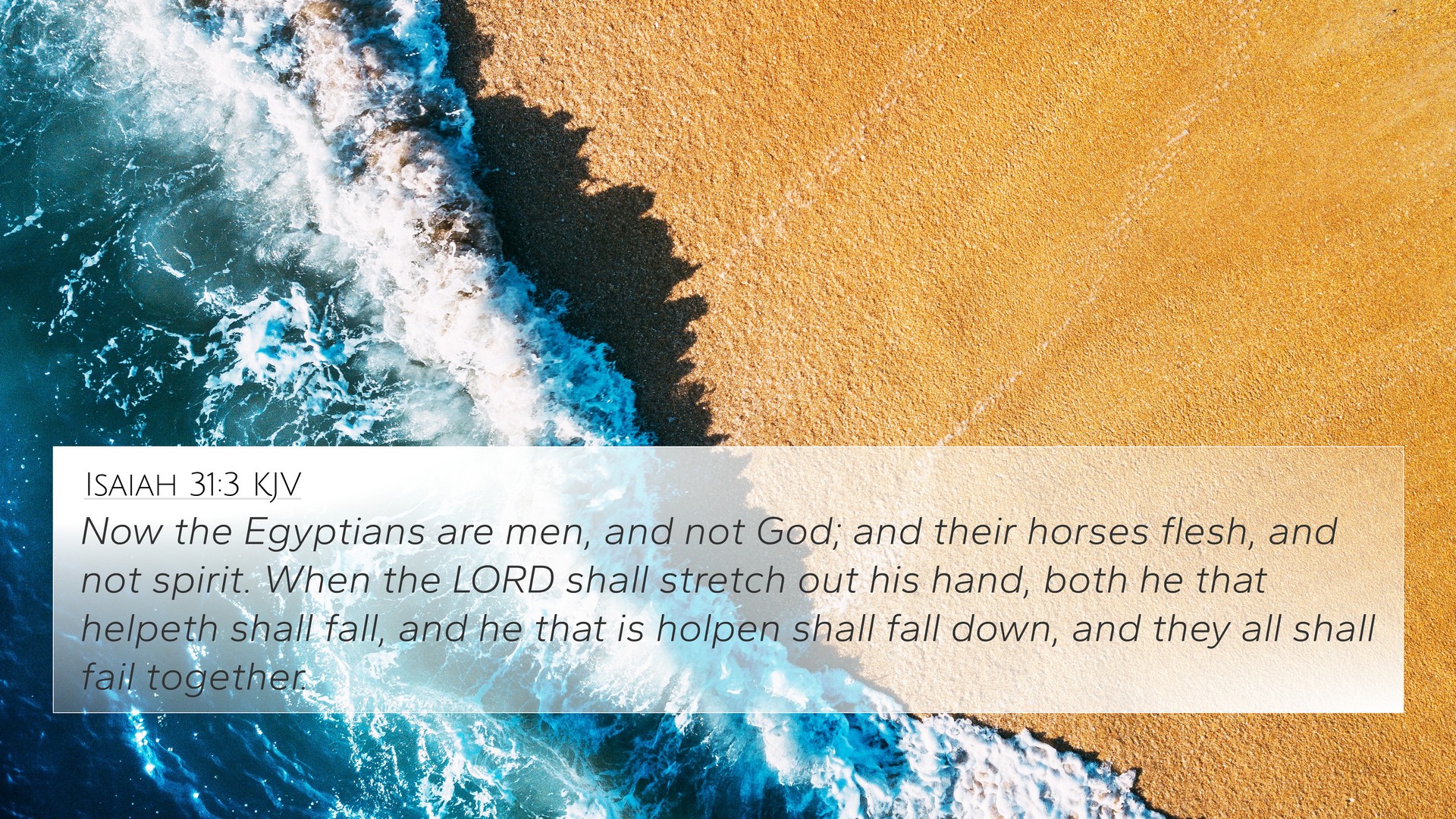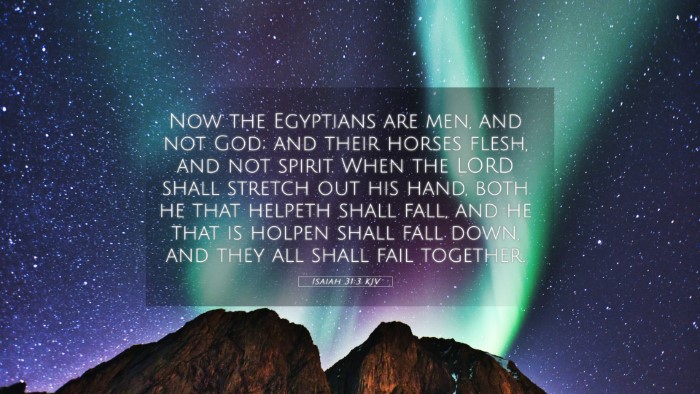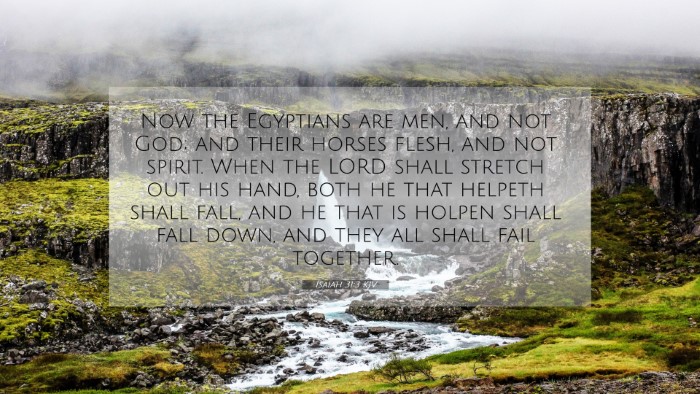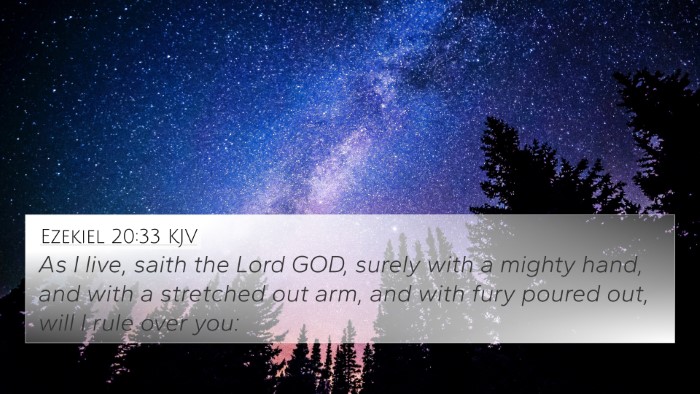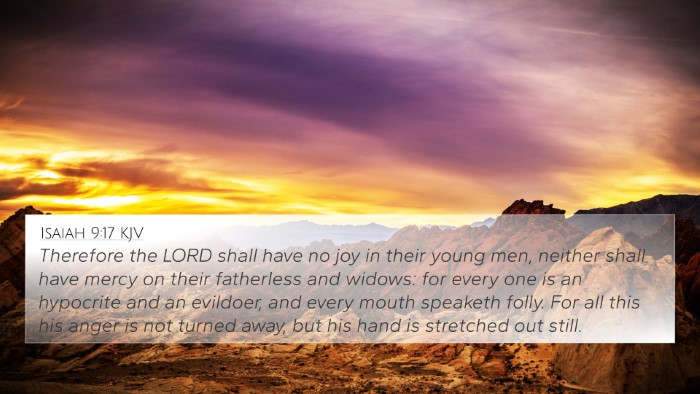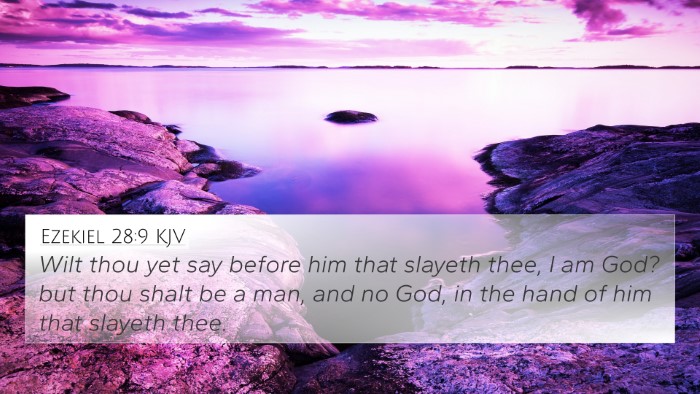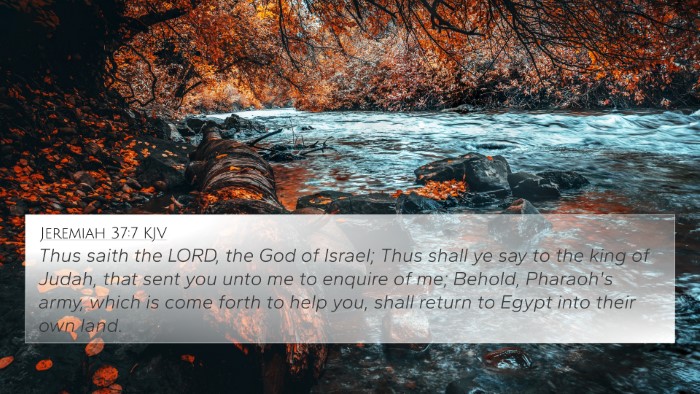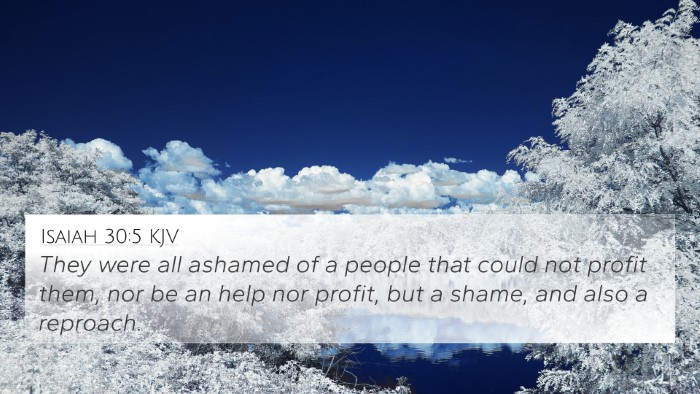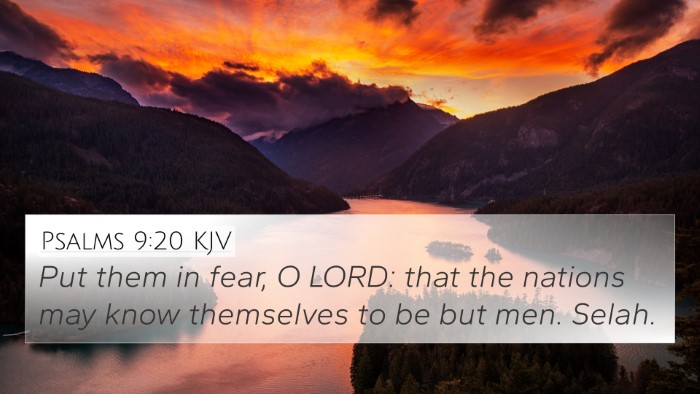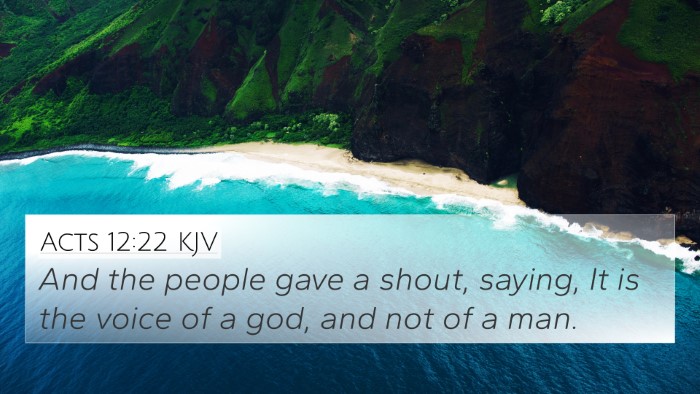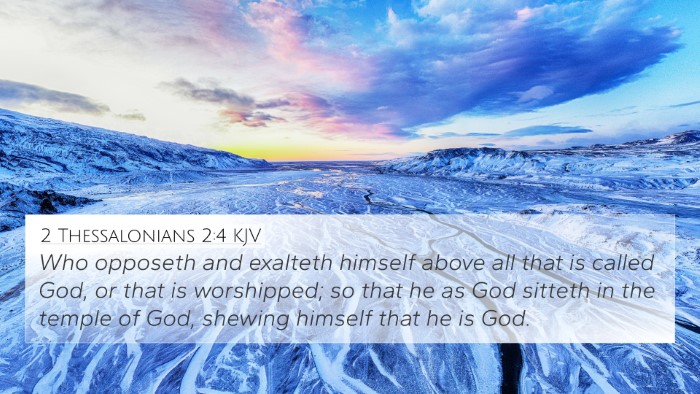Understanding Isaiah 31:3
Isaiah 31:3 states: "Now the Egyptians are men, and not God; and their horses flesh, and not spirit. When the LORD shall stretch out his hand, both he that helps shall fall, and he that is hoping shall fall down, and they all shall fail together." This verse highlights the futility of relying on human strength and alliances rather than trusting in God.
Insights from Public Domain Commentaries
This section combines insights from renowned biblical commentators to deepen our understanding of this verse.
Matthew Henry's Commentary
Matthew Henry emphasizes that the Egyptians represent human alliances which are ultimately unreliable. He draws attention to the contrast between the frailty of mortal beings and the omnipotence of God. Henry warns against placing faith in military might or human wisdom, as they both fall short of divine strength and protection.
Albert Barnes' Notes on the Bible
Barnes further elucidates the meaning of this verse by indicating that the reliance on Egypt (symbolizing external help) is misplaced. He stresses that although Egypt has a reputation for strength through horses and chariots, they are ultimately ineffective compared to the divine power of God. Barnes asserts that in times of trouble, trusting God is the true source of safety.
Adam Clarke's Commentary
Adam Clarke takes a broader view by exploring the historical context of Israel's reliance on Egypt for aid. He states that this reliance signifies a lack of faith in God's providence. Clarke reinforces the idea that both the helpers (the Egyptians) and those who seek help from them will suffer together if they do not turn to God, highlighting the theme of divine judgment against misplaced trust.
Key Themes and Messages
- The futility of human reliance: Emphasizes that depending on mere mortals, like Egypt, cannot provide true security or deliverance.
- Divine omnipotence vs. human weakness: Contrasts God's eternal power with human limitations.
- The danger of misplaced trust: Warns believers against forsaking their trust in God for human solutions.
Cross-References to Isaiah 31:3
To further understand the significance of Isaiah 31:3, here are some pertinent cross-references:
- Isaiah 30:1-3: Highlights the consequences of seeking help from Egypt instead of trusting God.
- Psalm 146:3: A reminder not to put trust in princes, as they are human and cannot save.
- Jeremiah 17:5-6: Curses the man who trusts in man over God, portraying the spiritual desolation that follows.
- Isaiah 31:1: Directly addresses the folly of looking for help from flesh and blood instead of the Lord.
- 2 Kings 18:21: Records an instance where trust was placed in Egypt, leading to downfall.
- Micah 5:10-11: Prophesies a time when God will dismantle reliance on human fortresses.
- Isaiah 40:30-31: Provides a contrast by explaining that those who wait on the Lord will renew their strength.
- Proverbs 3:5-6: Encourages believers to trust in the Lord with all their heart, not leaning on their own understanding.
- Romans 8:31: Affirms that if God is for us, none can stand against us, stressing divine support over human aid.
- Hebrews 13:6: The assurance that the Lord will help those who depend on Him.
Conclusion
Isaiah 31:3 serves as a powerful reminder of the importance of placing trust in God rather than relying on human strength or partnerships. The insights from various commentaries illuminate the timeless theme of divine supremacy, encouraging believers to seek God in times of dependency and need.
Further Studies and Applications
For those looking to deepen their understanding, the following resources can be beneficial:
- Bible concordance: A helpful tool in locating verses that correspond to similar themes.
- Bible cross-reference guide: Assists in linking Bible scriptures across various books and themes.
- Cross-reference Bible study: Methods to explore the interconnectedness of scriptures and their implications.
